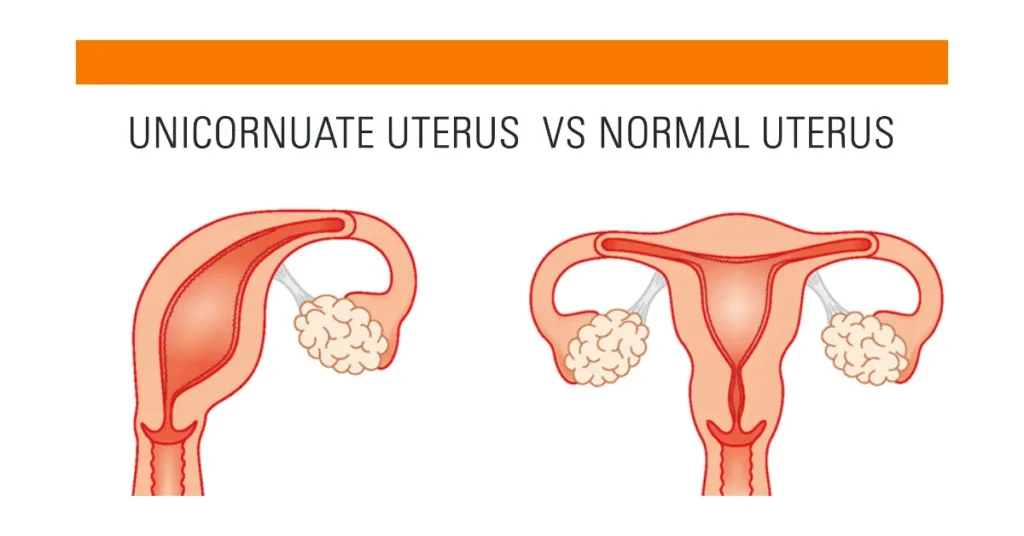
Welcome to this comprehensive guide on unicornuate uterus pregnancy. In this article, we will delve into the fascinating world of unicornuate uterus, a rare congenital condition that affects a woman’s reproductive system. We will explore the causes, symptoms, diagnosis, and management of unicornuate uterus pregnancy, shedding light on this unique journey experienced by some women. Whether you are seeking information for yourself or supporting a loved one, this article aims to provide you with valuable insights and answers to common questions surrounding this topic.
Related: Can I Get Pregnant If He Pulled Out And Put It Back In?
Unicornuate Uterus Pregnancy: A Rare Phenomenon

Unicornuate uterus pregnancy refers to the occurrence of a pregnancy in a woman who has a unicornuate uterus. To better understand this condition, let’s first explore what a unicornuate uterus is. A unicornuate uterus is a rare anatomical variation of the uterus where one side fails to develop fully, resulting in a smaller uterus with a single horn instead of the usual two.
Understanding the Unicornuate Uterus
The unicornuate uterus is a result of a developmental abnormality that occurs during embryogenesis. This condition is typically present at birth and is caused by incomplete fusion of the two Müllerian ducts, which are responsible for the formation of the uterus. As a result, one side of the uterus fails to develop, leading to the characteristic shape of a unicornuate uterus.
Signs and Symptoms of Unicornuate Uterus Pregnancy
Women with a unicornuate uterus may experience various signs and symptoms during pregnancy. While the presence of a unicornuate uterus itself may not cause any noticeable symptoms, certain factors associated with this condition can pose challenges and increase the risk of complications. Some common signs and symptoms include:
- Recurrent Miscarriages: Women with a unicornuate uterus may have an increased risk of recurrent miscarriages. The limited space within the uterus may affect the implantation and growth of the fetus, leading to pregnancy loss.
- Breech Presentation: Babies in unicornuate uterus pregnancies are more likely to be in a breech position, where the baby’s buttocks or feet are positioned to be delivered first, instead of the head.
- Preterm Labor: The risk of preterm labor and premature birth is higher in women with a unicornuate uterus. The reduced capacity of the uterus can result in inadequate space for the growing fetus, triggering early labor.
- Fetal Growth Restriction: Due to limited space, the fetus may experience restricted growth, leading to lower birth weight and potential developmental challenges.
- Kidney Anomalies: Women with a unicornuate uterus may also have kidney abnormalities, as the development of both the reproductive and urinary systems is closely related during embryogenesis.
Diagnosis of Unicornuate Uterus Pregnancy
Diagnosing a unicornuate uterus pregnancy typically involves a combination of medical history, physical examination, and imaging tests. Here are the common methods used for diagnosis:
- Pelvic Examination: During a pelvic examination, your healthcare provider may be able to detect the presence of a unicornuate uterus. The single horn structure and a smaller uterine size on one side may indicate the condition.
- Ultrasound: Ultrasound imaging is a valuable tool for visualizing the uterus and identifying any structural abnormalities. A transvaginal ultrasound may be performed to obtain detailed images of the uterus and confirm the diagnosis of a unicornuate uterus.
- Magnetic Resonance Imaging (MRI): In some cases, an MRI may be recommended to provide a more detailed evaluation of the uterus and surrounding structures. MRI can offer a clearer view of the unicornuate uterus and help determine the optimal management plan.
It is important to note that a proper diagnosis is crucial for unicornuate uterus pregnancy. If you suspect that you may have a unicornuate uterus or are experiencing any of the associated symptoms, it is essential to consult with a healthcare professional who specializes in reproductive health. They will be able to conduct the necessary examinations and tests to provide an accurate diagnosis.
Management and Treatment Options
Managing a unicornuate uterus pregnancy involves a multidisciplinary approach and close monitoring throughout the gestational period. The specific management plan will depend on various factors such as the individual’s overall health, the stage of pregnancy, and the presence of any associated complications. Here are some common management and treatment options:
- Regular Prenatal Care: Women with a unicornuate uterus pregnancy require diligent prenatal care to closely monitor the progress of the pregnancy. Regular check-ups, ultrasounds, and other diagnostic tests will help ensure the well-being of both the mother and the baby.
- Cervical Cerclage: In cases where there is a risk of preterm labor or cervical incompetence, a cervical cerclage may be recommended. This procedure involves stitching the cervix to provide additional support and prevent premature dilation.
- Close Fetal Monitoring: Given the increased risk of fetal growth restriction and other complications, close monitoring of the baby’s growth and well-being is essential. This may involve regular ultrasound scans, non-stress tests, and Doppler studies to assess blood flow.
- Antenatal Corticosteroids: If preterm birth is anticipated, the administration of antenatal corticosteroids may be considered. These medications help promote fetal lung maturity and reduce the risk of respiratory complications in premature infants.
- Delivery Planning: The mode and timing of delivery will be carefully determined based on individual circumstances. Vaginal delivery may be possible in some cases, while others may require a planned cesarean section to ensure the safety of both the mother and the baby.
It is crucial to remember that each unicornuate uterus pregnancy is unique, and the management approach should be tailored to the specific needs of the individual. Regular communication and collaboration between the healthcare team and the expectant mother are key to ensuring the best possible outcome.
What is the Probability of Unicornuate Uterus Pregnancy?
The reproductive performance of women with a unicornuate uterus is poor, with a live birth rate of only 29.2%, prematurity rate of 44%, and an ectopic pregnancy rate of 4%. A 2018 study found that the cumulative clinical pregnancy rate was significantly lower in women with a unicornuate uterus than in those with a normal uterus, with a rate of 53.1% compared to 65.7% in the control group. Another study in 2016 analyzed a group of women diagnosed with a unicornuate uterus and identified the likelihood for successful pregnancies in some. Therefore, while it is possible for a woman with a unicornuate uterus to conceive, the probability of conception is lower than in women with a normal uterus.
Conclusion
Unicornuate uterus pregnancy is a unique journey that requires specialized care and monitoring. While it presents certain challenges and increased risks, with proper management and support, many women with a unicornuate uterus can have successful pregnancies and healthy babies. It is crucial for individuals with this condition to seek regular prenatal care, collaborate closely with their healthcare team, and stay informed about the specific considerations and potential complications associated with unicornuate uterus pregnancy.
By understanding the nature of unicornuate uterus and the potential risks involved, women and their healthcare providers can work together to navigate this journey and ensure the best possible outcomes for both the mother and the baby. Remember, each unicornuate uterus pregnancy is unique, and personalized care is key to a successful and safe experience.
Frequently Asked Questions (FAQs)
Can I have a successful pregnancy with a unicornuate uterus?
Yes, many women with a unicornuate uterus have successful pregnancies. However, it is important to have regular prenatal care and closely monitor the progress of the pregnancy due to the increased risk of complications.
Are there any fertility treatments available for women with a unicornuate uterus?
Fertility treatments such as in vitro fertilization (IVF) may be considered for women with a unicornuate uterus who are experiencing difficulties conceiving. However, the success rates may vary, and it is best to consult with a fertility specialist to discuss individual options.
Is a unicornuate uterus hereditary?
No, a unicornuate uterus is not typically hereditary. It is a congenital condition that occurs due to developmental abnormalities during embryogenesis.
Can a unicornuate uterus be corrected through surgery?
Surgical correction of a unicornuate uterus is not usually recommended. The focus is primarily on managing and monitoring the pregnancy to ensure the best possible outcome.
What are the long-term implications of having a unicornuate uterus?
Apart from the challenges during pregnancy, a unicornuate uterus does not usually pose significant long-term health risks. However, it is advisable to discuss any concerns with a healthcare professional.
Can I have multiple pregnancies with a unicornuate uterus?
Yes, it is possible to have multiple pregnancies with a unicornuate uterus. However, each pregnancy should be carefully managed and monitored due to the increased risks associated with this condition.











